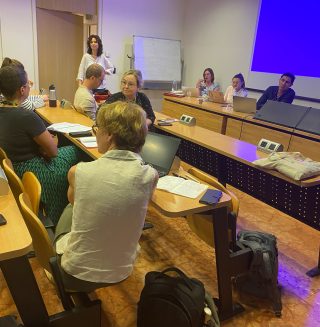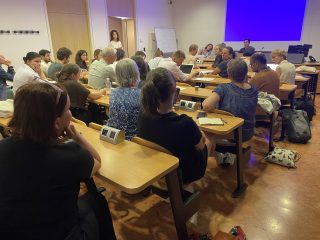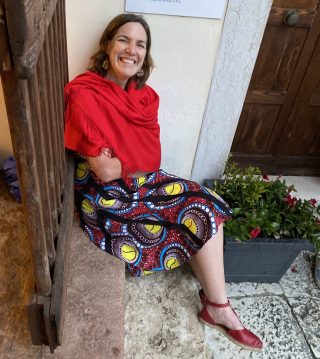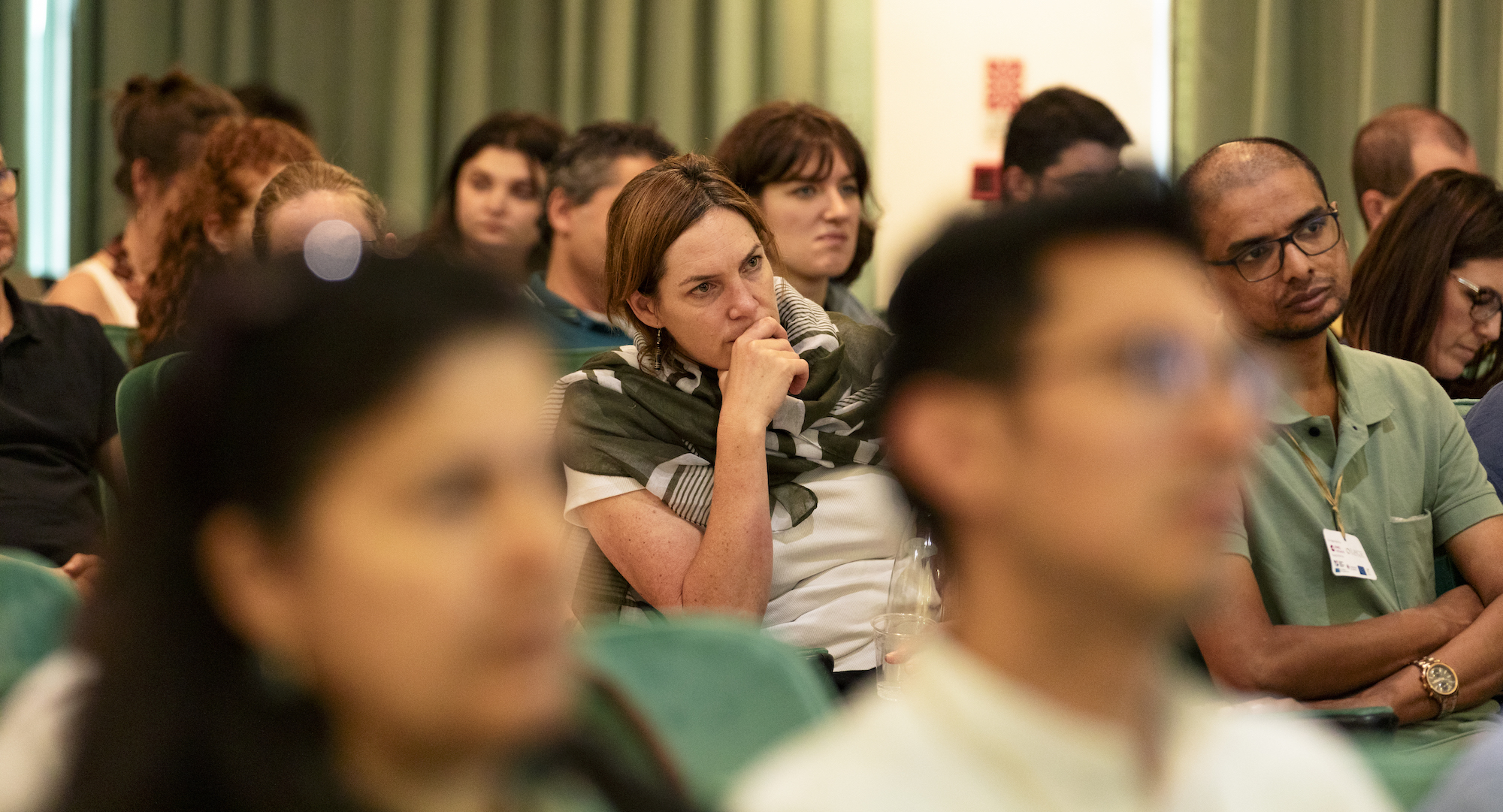The 9th edition of the EMES Training School offered the opportunity to a solid group of PhDs and Early Career Researchers (ECRs) to get together and share their ongoing research and future plans for life. We at EMES know very well that while the academic part of this experience is essential, there’s also a solidarity-based trust and sense of community that very often goes unnoticed in the complex and competitive academic world. This 2024 edition counted with the support of the Society for the Advancement of Management Studies (SAMS) to offset some of the costs involved in joining a given location to meet (it was Trento this time): underfunding is indeed one of the challenges that ECRs are facing in addition to unclear professional outlook and work precariousness in most cases. We have asked some of those ECRs supported by SAMS to share their insight on this #9EMEStrainingschool: their accounts combine a profound sense of gratitude with a feeling of discovery about the relevance of their own research and the resonance of their own emotions with that of peers and even faculty members. It’s a true pleasure to count on you, members of EMES, to continue building together around the SE field.
Insightful account 1: Kerryn Krige (South Africa/United Kingdom), London School of Economics
The first week of July 2024, I attended the EMES Training School – this time as part of the Early Career Researcher Group, having graduated with my PhD in 2023.
I am a South African scholar, working on social entrepreneurship in the African context. I struggled to align my PhD findings to that of the social entrepreneurship literature, and through this process, came to realise the dominance of western frameworks both in our interpretation of what social entrepreneurship is, but also in the application of theory. This is a space that is difficult to navigate in a PhD, where the goal is to align your studies to what exists, rather than be exploratory and challenge what is there. I felt alone in exploring the extent of informality in the South African social entrepreneurship sector, and the conformity to indigenous, highly localised logics. Instead of building confidence as I drew conclusions that weren’t mainstream, the opposite happened.
This Training School is the first time in 24 months that I have realised that my findings are relevant and useful. Talking to scholars from Latin America, Eastern Europe, Russia, other African countries and Asia, has made me appreciate the diversity of perspectives and theoretical positions that people are taking, to bring nuanced cultural and geographic knowledge. I participated in a panel on non-western approaches to social entrepreneurship (*), sharing with colleagues from Mexico and Ecuador their interpretations of the social and solidarity economy. My presentation to peers helped me both understand my own study, but also map out the potential that exists for publications and knowledge exchange.


(*) This was the parallel workshop entitled “Looking beyond Western frameworks: theoretical and conceptual
approaches from the Global South on the SE” held on Wednesday, July 3rd.
In short, my time at the Training School has helped me in ways that I didn’t expect. I have realised there is validity to my avenue of research, and that I am not alone. I have discovered other theoretical positions and schools of thought (I now have an even longer reading list, that includes Polanyi, and Weber), I have been introduced to new contextual framings and scholarship in colonial and post colonial theories. My perspectives are more nuanced, and as a scholar I believe I have a richer understanding of the complexity of our field, and the research agenda ahead as we expand our scholarship and understanding. But most importantly I have realised I am not alone, and that there is validity to my work.
My sincere thanks to everyone who made this possible: the EMES Coordination Unit and faculty team, SAMS for their incredible support that enabled me to attend, to the University of Trento for their generosity and hospitality as hosts, and to my peers and scholars for all of our discussions and debates, in the classroom and out.
 Kerryn is Senior Lecturer, Teaching Practice at the London School of Economics’ Marshall Institute. Her research is focused on social entrepreneurship in the African context, and she is co-founder of the African Network of Social Entrepreneurship Scholars. She is co-author of The Disruptors, social entrepreneurs reinventing business and society, and has written and edited teaching cases on social entrepreneurship in context. She is a board member of EMES, and has a joint PhD from KU Leuven (Belgium) and the University of Pretoria (South Africa). Here, she was waiting for the #9EMEStrainingschool gala dinner to start at the entrance of an ancient Italian monastery.
Kerryn is Senior Lecturer, Teaching Practice at the London School of Economics’ Marshall Institute. Her research is focused on social entrepreneurship in the African context, and she is co-founder of the African Network of Social Entrepreneurship Scholars. She is co-author of The Disruptors, social entrepreneurs reinventing business and society, and has written and edited teaching cases on social entrepreneurship in context. She is a board member of EMES, and has a joint PhD from KU Leuven (Belgium) and the University of Pretoria (South Africa). Here, she was waiting for the #9EMEStrainingschool gala dinner to start at the entrance of an ancient Italian monastery.

